Abdominal fat can creep up over the years—but it doesn't have to, experts say. "There are a number of roadblocks people in their 50s will face when trying to lose weight," says NSCA-certified strength and conditioning specialist and personal trainer Brian Durbin. "But once you know what they are—and how to work around them—it's easy to be successful at dropping pounds." Here are five proven ways to lose belly fat after 50. Read on—and to ensure your health and the health of others, don't miss these Sure Signs You've Already Had COVID.
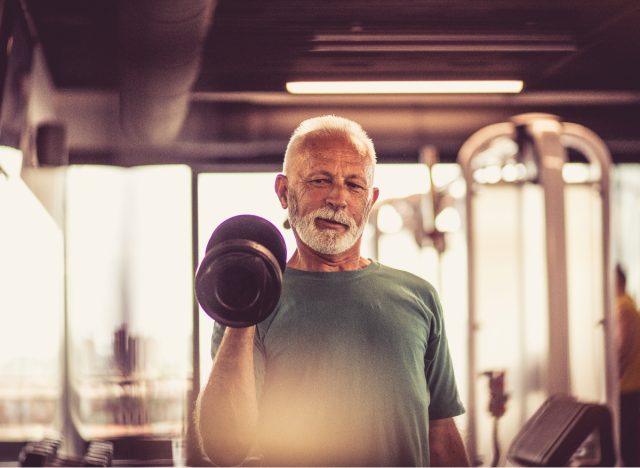
By the time you reach 50, you've already lost 10% of muscle mass, according to the American College of Sports Medicine—which is why strength training is so important. "Muscle is more metabolically active — it burns more calories than fat," says William Yancy Jr., MD, director of the Duke Lifestyle and Weight Management Center in Durham, North Carolina. "So having a higher ratio of muscle to fat will mean you burn more energy — just while sitting. To build that muscle, you have to exercise, and that burns calories, too."
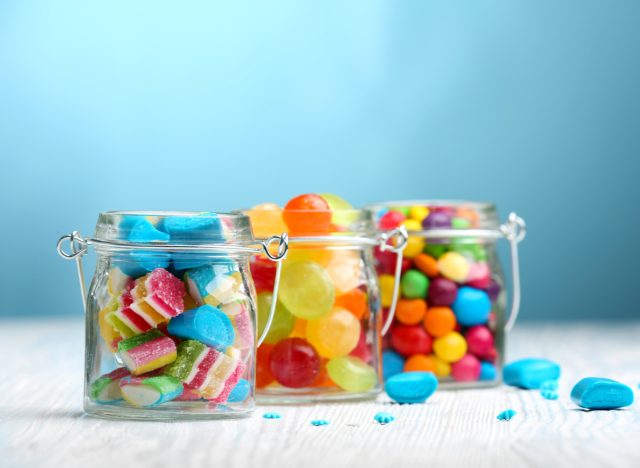
Hormonal changes after 50 can lead to more abdominal fat—which is why it's important to be proactive with diet and exercise. "The decline in estrogen in women can lead to a change of depositing fat around the hips to more around the abdomen. This can lead to insulin resistance, which furthers weight gain and makes weight loss difficult," says Dr. Yancy. For men, "decreased testosterone leads to loss of muscle, which slows the metabolism… Reduce your intake of refined sugars and starches, eat more protein and whole foods, and exercise regularly."
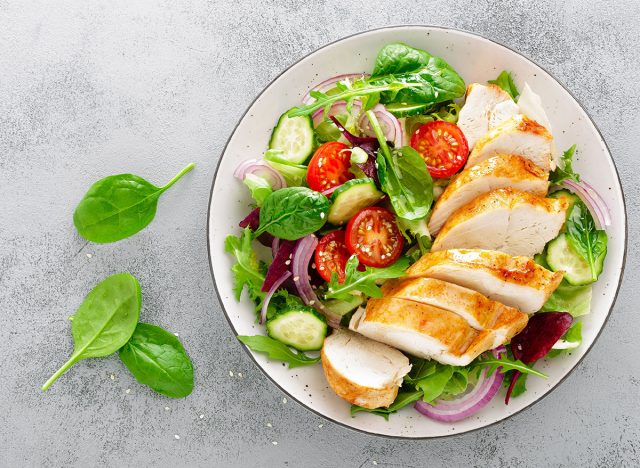
"At age 50, you need 200 fewer calories a day than you did when you were 20, assuming you are equally active," says OB/GYN Stacy Weiss, MD. "After age 60, you need 400-500 calories less. If you're moderately active, up to age 50, around 2,000 calories a day is good. After 50, you need to decrease to 1,800 calories."
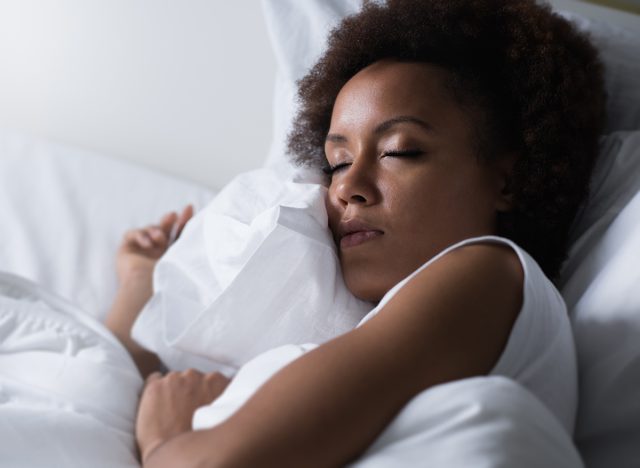
Numerous studies show sleep is important for weight loss, and for losing belly fat specifically. "Sleep is extremely important regarding our weight," says Dr. Weiss. "Studies show people who are sleep deprived consume more calories and tend to be more overweight. Lack of sleep causes hormonal dysregulation and leads to food cravings. We all need to go to bed earlier."
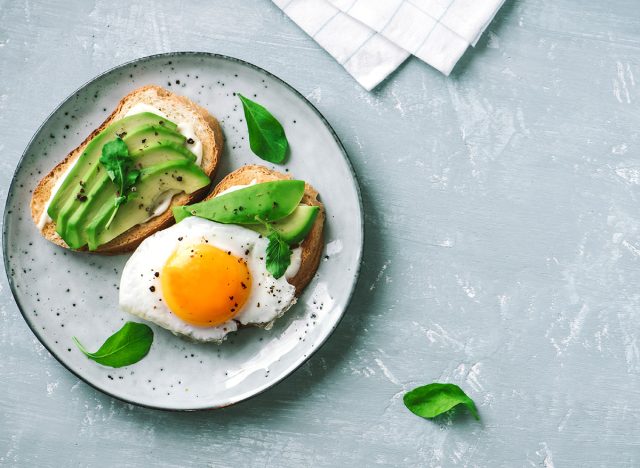
Research shows eating more protein can help with weight loss, experts say. "Aging muscles become less receptive to protein, but you can counteract these age-related changes by boosting your daily protein and making sure each meal contains 20-30g of high-quality protein (proteins that contain all the essential amino acids the body doesn't manufacture itself). These essential amino acids do things like repair body tissue and break down food," says dietitian and exercise physiologist Caitlin Reid. "For example, you'll find 30g of protein in 110g of cooked red meat. This amount of protein will provide enough essential amino acids to help you maintain, and over time increase muscle protein. Non-meat eaters can get protein through foods like dairy, eggs, nuts, wheat, lentils, sunflower and sesame seeds, tofu, soy protein, spinach, turnip greens, broccoli, snow peas, kidney beans and watercress."
Ferozan Mast
"lose" - Google News
July 17, 2022 at 06:46PM
https://ift.tt/9rUZtbu
Over 50? Here's How to Lose Abdominal Fat — Eat This Not That - Eat This, Not That
"lose" - Google News
https://ift.tt/lmTxnyH https://ift.tt/k1A7JVn
Bagikan Berita Ini














0 Response to "Over 50? Here's How to Lose Abdominal Fat — Eat This Not That - Eat This, Not That"
Post a Comment